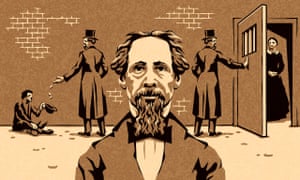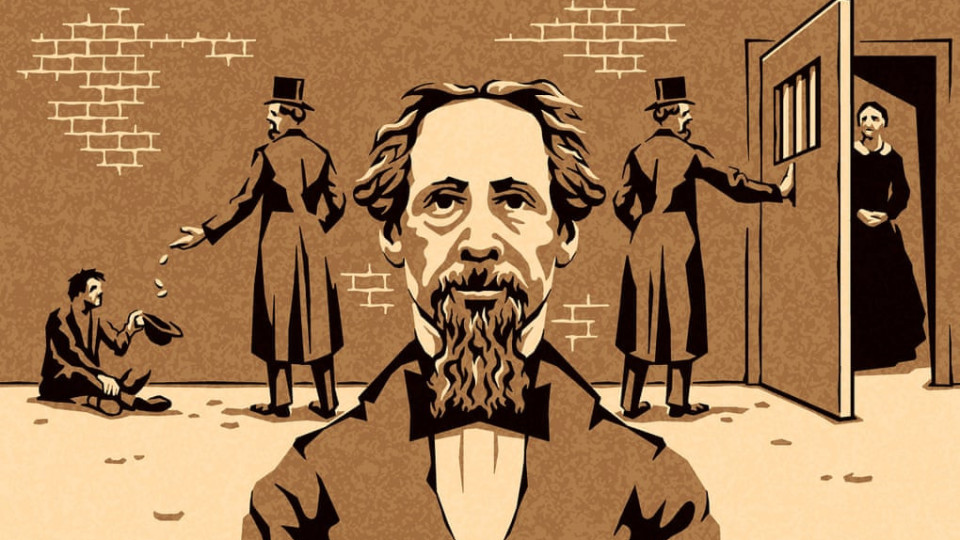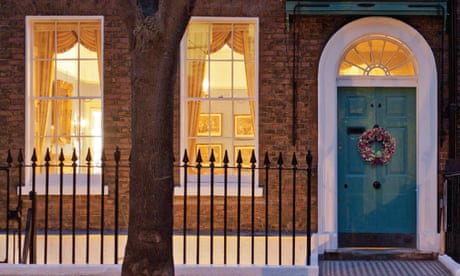
My ancestor wanted to have his wife declared mad and locked up. Unlike the great writer, he succeeded

Domestic tyranny was a fact of Victorian life: men who were saintly in public could behave very cruelly behind their front doors. In 1878, close to the end of her life, Catherine Dickens began to confide to her neighbours in Camden, north London, a few details of how her late husband had treated her. Charles was by now eight years dead, and the couple had last lived together in 1858, around the time the novelist began his long affair with the young actress Ellen Ternan. But the public knew nothing of this relationship.
Dickens’ worldwide reputation as a compassionate moralist – the enemy of humbug and suffering – continued to flourish untainted by the facts of his private life. Naturally the neighbours, Edward Dutton Cook and his wife, were shocked when Catherine told them how Charles had once tried to have her locked up as a madwoman.
The crucial evidence, which was disclosed this week, comes in a letter that Cook wrote to a friend and fellow journalist, William Moy Thomas. “He [Dickens] discovered at last that she had outgrown his liking,” Cook wrote of Catherine’s disclosures. “She had borne 10 children and had lost many of her good looks, was growing old, in fact. He even tried to shut her up in a lunatic asylum, poor thing! But bad as the law is in regard to proof of insanity he could not quite wrest it to his purpose.”
Despite the fact that this letter constituted a communication between the leakiest of vessels, two journalists, its contents remained unknown until the recent discovery by Prof John Bowen of a cache of 98 letters at Harvard University. “It was a moment that made the hairs on the back of my neck stand up,” Prof Bowen, of the University of York, said this week. Thanks to Claire Tomalin, the biographer of both Dickens and Ternan, we already knew that Dickens’ behaviour was secretive and complicated; but now, if we believe Cook’s letter, we have his wife attesting to a ruthless degree of self-interest. If he could have her declared mad, and she could be confined to an asylum, he could live as he pleased and nobody would think badly of him. A malignant character in one of his novels would have behaved no worse.
But the real-life story has a hero. According to Bowen, the doctor who stood in Dickens’ way and refused to certify Catherine’s insanity was most probably Thomas Harrington Tuke, superintendent of Manor House asylum in Chiswick between 1849 and 1888. Tuke and Dickens were friends. They wrote to each other; Dickens attended the christening of Tuke’s son. Then the friendship seems to have turned sour, so that by 1864 Dickens was calling Tuke a “wretched being” and a “medical donkey”. Bowen speculates, reasonably, that it was Tuke’s refusal to certify Catherine that caused the breach.
If so, it was behaviour firmly in the Tuke tradition. The Tukes were Yorkshire Quakers who made a small fortune trading in coffee, chocolate and tea, and spent some of the profits on philanthropy, including support for the campaign to abolish the slave trade. No other family, possibly in the entire history of British medicine, had such a concern for the welfare of the mentally ill, beginning in 1796 when William Tuke opened a Quaker asylum in York called the Retreat. There, patients were treated humanely and compassionately – the new “moral treatment” – in contrast to the brutish methods of the traditional asylums whose inmates were regarded as sub-humans fit only for restraint.
After William Tuke came a succession of Tukes, so many (the Dictionary of National Biography has 20 entries with that surname) that the connection between them can sometimes be hard to establish. In 1866, another of them, John Batty Tuke, was appointed chief physician to the newly opened Fife and Kinross district asylum, near Cupar. As children we knew it by its location, Springfield. A pejorative: “He’s away tae Springfield” meant someone who was off his head. My great-grandmother Robina Birmingham entered its doors on 29 January 1898 and died there three months later. This week, for the first time, I looked at her entry in the asylum’s Register of Lunatics, where she is described as a female pauper aged 47 whose bodily condition is weak and who suffers from melancholia, which, together with mania and imbecility, is one of the register’s three favourite categories of mental disorder.
On whose authority was she sent there? The register lists a Dr Gillespie Esq, sheriff substitute of Dunfermline, but her children always believed that their father, Walter Birmingham, had connived to have his wife put away because she was an inconvenience to his drinking. (He was a drunk, though in the register he masquerades respectably as “Chelsea Pensioner”.) She had not been as lucky as Mrs Dickens, but then neither had her husband enjoyed the good fortune of Mr Dickens. Born in County Cork in the famine year of 1848, he enlisted in the Royal Artillery as an 18-year-old and spent most of the next 20 years in India, serving in three Afghan campaigns and spending several jail terms in the garrison cells for desertion. Primary syphilis caught by “contagion” and treated with “incision” and iodine is entered in his medical records for 1871. Three years later at Ahmedabad camp he married Robina, a Scottish “layer-in”, or midwife, and with her had five children.
On his discharge, in 1890, he settled with his wife near her original home in Fife. Various stories have come down to us: that he drove a shunting locomotive at a Fife colliery; alternatively that he drove the knacker’s cart. He never disclosed his birthplace or the Catholic faith he was born into: those have taken his descendants years of on-and-off research. The one securely documented fact is that he died of chronic alcoholism in Edinburgh Royal Infirmary a year after his wife. His last recorded address is Mrs Maver’s lodging house, which was above a pub in Leith.
Tomalin, commenting this week on the letters found in the Harvard archive, said an interesting thing: that it was Dickens and not his wife who was the mad one. He had told “startling lies” about his wife’s condition, but he had fallen in love and his life was a mess: “I think during this period he was mad, effectively, and their lives were thrown into turmoil … his behaviour for that period when he was determined to separate was shameful and I think he regretted it after.” Perhaps the same could be said of my great-grandfather: that he was not so much bad as driven mad by the privations and cruelties of the Victorian empire, and the routes to oblivion out of it. The 19th century, as Dickens often reminds us, was a brutal place.
The Guardian












Leave a comment